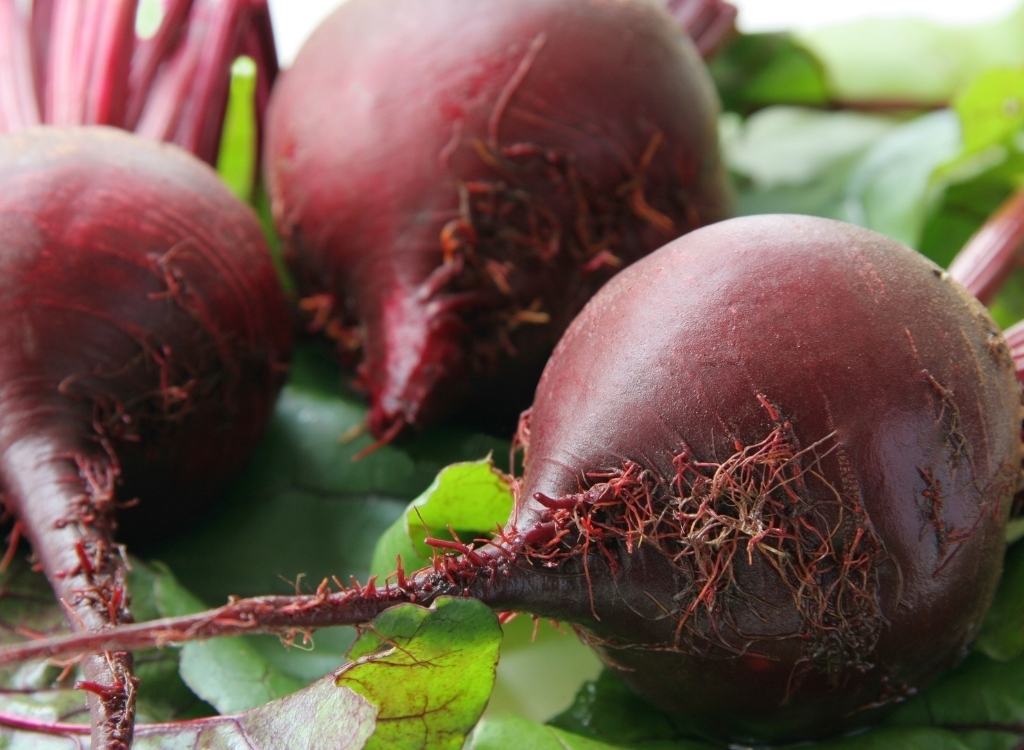Curious about a simple yet powerful way to enhance your health? The health benefits of beets are game-changers. This vibrant vegetable is loaded with essential nutrients and antioxidants that can invigorate your body and mind. From improving heart function to supporting digestion, beets offer a natural boost to your well-being. Explore how this humble root can make a big difference in your health journey!
1. Heart Health: A Natural Solution for Cardiovascular Well-being

Protecting cardiovascular health is crucial for maintaining overall well-being. Beets are often hailed as a magical fruit for heart health due to their high nitrate content. Nitrates are converted into nitric oxide in the body, which helps relax and dilate blood vessels, thereby lowering blood pressure. This effect is evidenced by research showing that beet juice can reduce both systolic and diastolic blood pressure.
A recent study demonstrated that participants who consumed 70 ml of nitrate-rich beet juice experienced a 5.2 mm Hg decrease in blood pressure compared to a placebo group. Additionally, beets can lower homocysteine and LDL cholesterol levels, both of which are vital for managing hypertension. Another study revealed that individuals with high blood pressure who drank 250 ml of beet juice daily for four weeks saw a reduction in their blood pressure. (NCBI, NCBI)
2. Anti-Inflammatory Properties: Combatting Inflammation with Beets

Beets are endowed with anti-inflammatory properties primarily due to betanin, a type of pigment found in red beets. Betanin has been shown to inhibit specific inflammatory pathways, reducing inflammation. A 2014 study highlighted that betanin could decrease the activity of certain inflammatory enzymes by up to 32%. Additionally, betanin acts as a potent free radical scavenger and stimulates antioxidant defense mechanisms, mitigating oxidative stress; a significant factor in inflammation.
Research also indicates that beetroot extracts can alleviate discomfort caused by osteoarthritis, underscoring their therapeutic potential. (ScienceDirect, NCBI)
3. Enhancing Brain Function: Beets and Cognitive Health

The nitrate content in beets contributes to improved cerebral blood flow, particularly in the prefrontal cortex; a region associated with planning and reasoning. A 2010 study found that older adults who consumed higher doses of nitrates experienced increased cerebral perfusion in the frontal lobe’s white matter. This enhanced blood flow supports cognitive functions such as memory and learning.
Beets are also rich in folic acid (vitamin B9), essential for synthesizing blood cells and producing DNA and RNA. Folic acid plays a role in preventing neurological and psychological disorders like depression, dementia, and Alzheimer’s disease. Furthermore, the high nitrate content in beets promotes neuroplasticity, the brain’s ability to form new connections and adapt to new information or recover from injuries. (NCBI)
Just like beets, pomegranates are rich in antioxidants that support brain health and cognitive functions. The health benefits of pomegranate include its high levels of polyphenols, which have been shown to reduce oxidative stress and inflammation in the brain. This helps protect against cognitive decline and supports overall mental clarity and function. Including both beets and pomegranates in your diet can provide a powerful boost to your brain health.
4. Digestive Health: Beets as a Fiber Powerhouse

Beets are an excellent source of dietary fiber, with one cup of beetroot providing approximately 3.8 grams. Dietary fiber is crucial for digestive health as it aids in maintaining bowel regularity and preventing constipation. A fiber-rich diet may also lower the risk of conditions like colon cancer and inflammatory bowel disease (IBS).
Beets contain bioactive compounds such as pectic oligosaccharides and phenolics, which positively affect gut microbiota composition. For instance, a 2020 review noted that pectic oligosaccharides and beet extract have bifidogenic effects, promoting the growth of probiotics in the gut. This results in an increase in short-chain fatty acids, vital for digestive health. (PubMed)
5. Weight Management: How Beets Support a Healthy Weight

Beets are a low-calorie, fat-free food that provides essential vitamins and minerals, making them a valuable addition to any weight loss program. Their high fiber content contributes to a feeling of fullness, which helps control hunger throughout the day. With only 37 calories per half-cup of cooked, sliced beets, they are an excellent choice for managing calorie intake without sacrificing satiety.
6. Supports Detoxification: Beets and the Body’s Cleansing Process

Detoxification is vital for maintaining health and fitness. Beets contain phytonutrients called betalains, which support detoxification by enhancing enzymes like glutathione S-transferase. This enzyme is crucial for the liver’s phase 2 detoxification process, aiding in hormone balance, cholesterol regulation, and energy improvement.
The betalains in beets also contribute to detoxification through their antioxidant and anti-inflammatory properties. They help remove harmful agents from the body and may lower cancer risk and slow tumor cell growth. (NCBI)
Other detoxifying foods include spinach and kale, which support liver function and help remove toxins from the body. The benefits of spinach are well-documented; it is rich in antioxidants and nutrients that aid in cleansing and protecting the liver. Similarly, the benefits of kale include its high content of vitamins and minerals, such as vitamin C and sulfur, which are essential for detoxification processes. Including these nutrient-dense foods in your diet can enhance your body’s natural detoxification capabilities and promote overall health.
7. Eye Health: Protecting Vision with Beets

Beets are a valuable source of vitamin A, essential for maintaining good vision. Vitamin A is a component of rhodopsin, a protein in the eyes responsible for low-light vision. It also helps keep the cornea, the eye’s transparent covering, clear. Additionally, the antioxidants in beets protect against free radical damage, preventing conditions like macular degeneration and cataracts. Lutein, an antioxidant found in beets, is particularly beneficial for eye health.
8. Blood Sugar Control: Beets and Diabetes Management
Beets are a good source of beta-carotene, an antioxidant also found in carrots. Beta-carotene may help manage type 2 diabetes by reducing body fat and cholesterol levels. Research shows that beetroot can lower blood sugar levels. A study with 44 diabetic patients revealed that consuming 100 grams of raw beets daily for eight weeks resulted in lower fasting blood sugars.
Beets’ nitrates may also enhance pancreatic blood flow, improving insulin efficiency and reducing blood sugar levels. Additionally, the polyphenols in beets can delay starch digestion, mitigating spikes in blood sugar. (NCBI, PubMed, NCBI)
9. Fetal Development: Beets and Pregnancy Health
Folate (vitamin B9) is crucial during pregnancy for preventing neural tube defects. Beets are a rich source of folate, essential for the healthy development of the baby’s nervous system. One cup of raw beets provides about 11% of the daily value for vitamin C, which supports fetal growth and development. Beets also offer vitamin B6, iron, magnesium, and potassium; all important for preventing anemia and reducing pregnancy complications like fetal growth restriction and preeclampsia.
10. Increased Energy Levels: Boosting Performance with Beets
Consuming beet juice before exercise can enhance cardio-respiratory endurance by improving lung function and muscle contractions. The nitrates in beets convert into nitric oxide, which supports these benefits. Athletes and fitness enthusiasts can benefit from increased endurance, improved blood flow, gas exchange, mitochondrial biogenesis, and muscle contraction efficiency, leading to enhanced performance. (NCBI)
Potential Risks and Considerations
While beets offer numerous health benefits, they may not be suitable for everyone. Here are some considerations:
- Beeturia: About 10-14% of people may experience beeturia, where urine turns reddish or pinkish. This condition, caused by an inability to metabolize betalin pigments, is harmless but can be alarming.
- Kidney Stones: High concentrations of oxalates in beets may contribute to kidney stones, especially in individuals with a history of oxalate-containing stones.
- Allergic Reactions: Though rare, beet allergies can cause itching, hives, or swelling. In extreme cases, they might lead to anaphylaxis.
- Gastrointestinal Discomfort: A sudden increase in dietary fiber from beets may lead to digestive issues like bloating, gas, or abdominal cramping.
- Low Blood Pressure: The nitrates in beets can lower blood pressure, which may be problematic for individuals with naturally low blood pressure or those on blood pressure medication.
- Blood Sugar Levels: Beets have a moderate glycemic index and natural sugars, so people with diabetes should monitor their intake carefully.
- Color Changes in Stools: Beet pigments may also color stools, a harmless effect that is purely cosmetic.
Incorporating beets into your diet can unlock a myriad of health benefits. Whether you’re aiming to improve heart health, enhance cognitive function, or support detoxification, the health benefits of beets are undeniable. This nutrient-rich vegetable offers a simple yet powerful way to elevate your well-being. So, why wait? Embrace the vibrant world of beets and experience their transformative impact on your health today.

Want more health tips?
Want to save these health tips? Enter your email below and get more health tips delivered to your inbox weekly!



